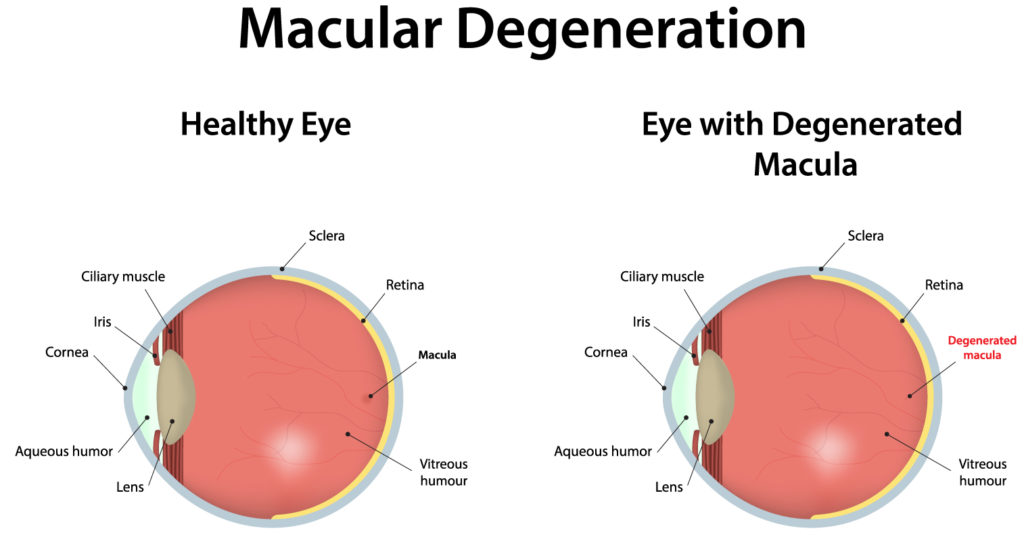Dry vs. Wet Macular Degeneration
There are two main types of AMD:
Dry AMD: The most common form. It happens when the macula thins with age and accumulates drusen (yellow deposits). Vision loss occurs slowly over time.
Wet AMD: Less common but more severe. It involves abnormal blood vessels growing under the macula that leak blood or fluid, causing rapid vision damage.
Symptoms of Macular Degeneration
People with AMD may experience:
Blurred or distorted central vision
Straight lines appearing wavy (metamorphopsia)
Difficulty seeing fine detail
Trouble reading or recognizing faces
Increased sensitivity to glare
These symptoms can significantly affect your quality of life, especially when driving or reading. Schedule a comprehensive eye exam to detect changes early.

Diagnosis and Testing
During an exam at Louisiana Eye & Laser, we use tools like:
Amsler Grid testing
OCT (Optical Coherence Tomography)
Retinal photography
Fluorescein angiography (in some cases)
Who Is at Risk?
You’re more likely to develop AMD if you:
Are age 50 or older
Smoke cigarettes
Have high blood pressure or high cholesterol
Eat a diet high in saturated fats
Have a family history of AMD
Have light-colored eyes
Are overweight or obese
How We Treat Macular Degeneration
There’s no cure, but early detection helps slow progression. Common treatments include:
AREDS vitamin supplements
Anti-VEGF injections to stop abnormal vessel growth
Low vision aids
Laser therapy, in select cases
We also help patients understand lifestyle changes to protect remaining vision.
What is Wet Macular Degeneration
Wet AMD often develops from untreated dry AMD. New, fragile blood vessels grow behind the retina and leak fluid, creating scarring that damages vision. If you experience sudden changes in sight, especially distortion or a dark spot in your central vision, contact us right away.
Tips for Managing Age-Related Macular Degeneration (AMD)
Stop smoking
Eat leafy greens, omega-3s, and antioxidants
Wear sunglasses to block UV rays
Exercise regularly
Control chronic health conditions like diabetes or hypertension
Book Your Eye Exam Today
At Louisiana Eye & Laser, we provide personalized care with advanced diagnostic technology and multiple locations for convenience. Whether you’re managing early signs or advanced AMD, our team is here to help preserve your vision.
Request an appointment with our retina specialists today or call one of our 14 locations across Central and North Louisiana.




